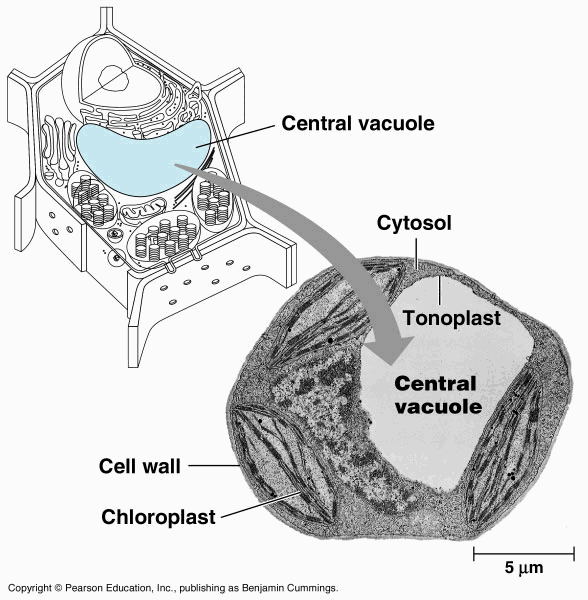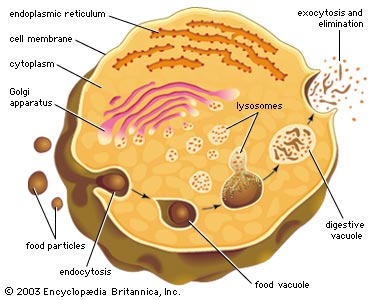Vacuole

A vacuole is a membrane-bound sac found in plant and animal cells that is used for storage. It also plays a role in intracellular digestion and release of cell waste.
In a plant cell, the vacuole is generally larger than those found in animal cells. Plant cells also usually have one central vacuole, but animal cells have several smaller vacuoles. In plants, the vacuole plays a huge role in turgor, which is the stiffening of a plant due to an influx of water. The vacuole is where the water collects in the plant cells. As the water in the vacuole increases, so does the pressure in the cell. If water is not added to the plant, the pressure in the vacuole lessens, eventually causing the plant to wilt.
 Another type of vacuole is the food vacuole, which is formed in certain organisms as they engulf food particles taken into the cell by phagocytosis (a specific form of endocytosis). Endocytosis is a form of active transport that moves larger particles into a cell. There are also contractile vacuoles (mainly used by protists) that function to pump excess water out of the cell.
Another type of vacuole is the food vacuole, which is formed in certain organisms as they engulf food particles taken into the cell by phagocytosis (a specific form of endocytosis). Endocytosis is a form of active transport that moves larger particles into a cell. There are also contractile vacuoles (mainly used by protists) that function to pump excess water out of the cell.
